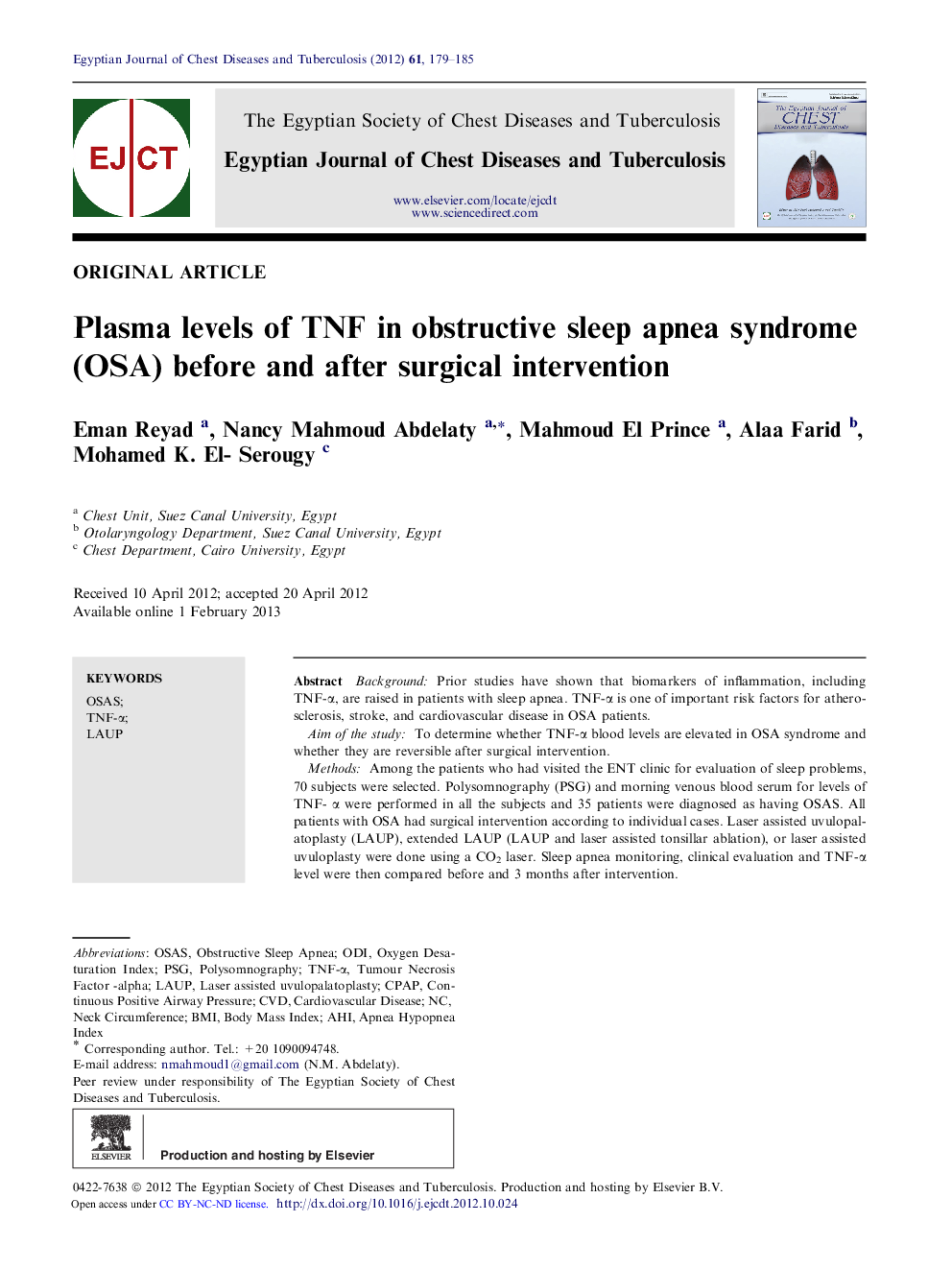| Article ID | Journal | Published Year | Pages | File Type |
|---|---|---|---|---|
| 3400400 | Egyptian Journal of Chest Diseases and Tuberculosis | 2012 | 7 Pages |
BackgroundPrior studies have shown that biomarkers of inflammation, including TNF-α, are raised in patients with sleep apnea. TNF-α is one of important risk factors for atherosclerosis, stroke, and cardiovascular disease in OSA patients.Aim of the studyTo determine whether TNF-α blood levels are elevated in OSA syndrome and whether they are reversible after surgical intervention.MethodsAmong the patients who had visited the ENT clinic for evaluation of sleep problems, 70 subjects were selected. Polysomnography (PSG) and morning venous blood serum for levels of TNF- α were performed in all the subjects and 35 patients were diagnosed as having OSAS. All patients with OSA had surgical intervention according to individual cases. Laser assisted uvulopalatoplasty (LAUP), extended LAUP (LAUP and laser assisted tonsillar ablation), or laser assisted uvuloplasty were done using a CO2 laser. Sleep apnea monitoring, clinical evaluation and TNF-α level were then compared before and 3 months after intervention.ResultsWe compared thirty five patients with OSA (21 males and 14 females), mean age (46.6 ± 12.4), with 35 control subjects (11males and 24 females), mean age (34.2 ± 9.6). The mean (SD) plasma level of TNF-α was significantly higher in patients with OSAS than in control group {(5.77 ± 4.04 pg/ ml vs. 2.24 ± 1.5 pg/ml respectively, (P = 0.039)}, and TNF-α level significantly decreased to {(3.22 ± 3.4 pg/ml) (P = 0.001)} after treatment. In addition, TNF-α levels showed a statistically significant positive correlation with the AHI before treatment and with neck circumference after treatment.ConclusionOur results suggest that TNF may be prognostic factors for comparing patients with OSAS before and after treatment.
